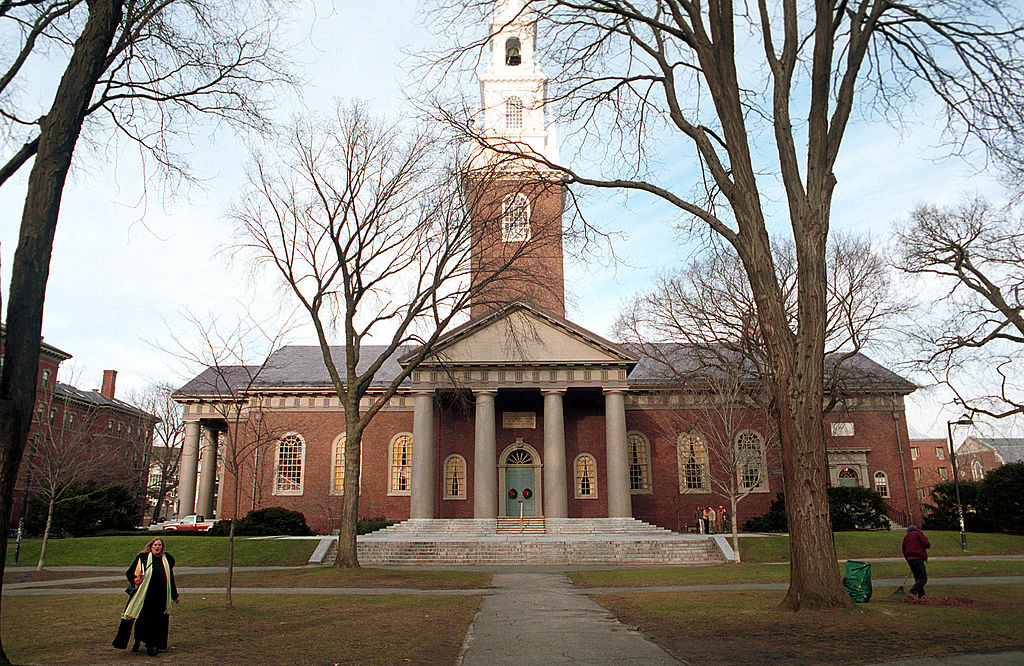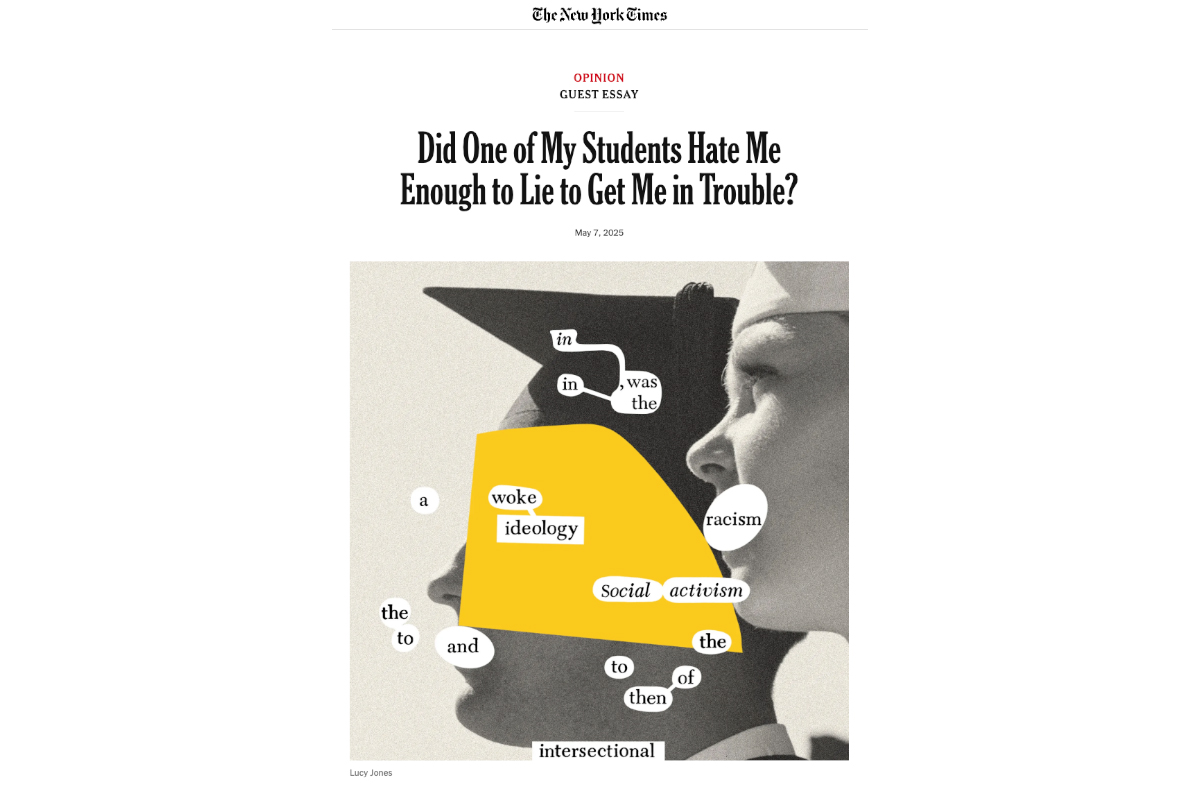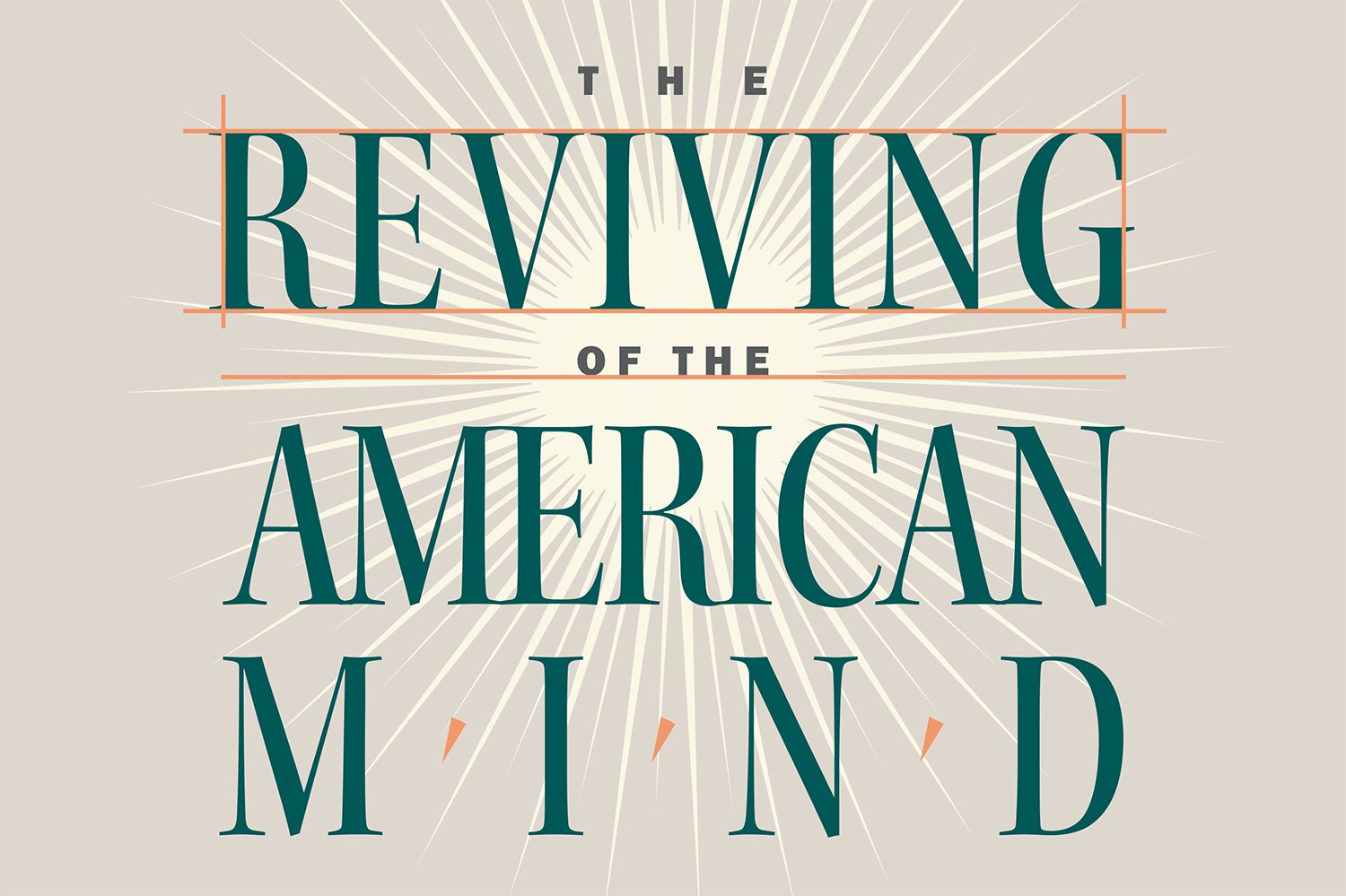Another phony Harvard professor? Say it ain’t so!
Harvard Business School professor Francesca Gino is reportedly on administrative leave with the university amid a review of alleged fraud within her body of research.
A group of three professors from other top universities, who collectively run a data blog called “Data Colada,” say they first flagged the purported fraud to Harvard Business School in 2021. This group of researchers claimed at the time that at least four papers authored by Gino contained falsified data — and they believed that many more of her papers had similar issues.
“In the fall of 2021, we shared our concerns with Harvard Business School (HBS). Specifically, we wrote a report about four studies for which we had accumulated the strongest evidence of fraud,” the authors said. “We believe that many more Gino-authored papers contain fake data. Perhaps dozens.”
“As you can see on her Harvard home page, Gino has gone on ‘administrative leave,’ and the name of her chaired position at HBS is no longer listed,” they continued. “We have learned (from knowledgeable sources outside of Harvard) that a few days ago Harvard requested that three of the four papers in our report be retracted.”
There’s some top-tier irony in their allegations. Gino is considered a top expert on ethics and human behavior and yet is accused of fabricating data in a study about… dishonesty. She authored a book about the benefits of rule-breaking called Rebel Talent. And about a month ago, Gino wrote in the Harvard Business Review about making “better, more informed decisions.”
Though some professors publicly expressed horror at the scandal, others weren’t so quick to condemn. Sa-kiera Hudson, an assistant professor in Management of Organizations at the University of California Berkeley’s Haas School of Business, suggested that while fraudulent studies should be called out, the real problem is the “folks who decide to police what is real vs fake science.”
“Neighborhood watches function similarly. And while maybe they work sometimes, there’s A LOT of room for error,” Hudson said.
Later on in her sanctimonious Twitter thread, Hudson used the phrase “shut and dry.” Incredible scholarship, Professor Hudson.
Whether or not Gino’s case is “shut and dry” — come on! — it’s not an isolated incident.
Christopher Brunet, the author of Karlstack, reported last spring that a political science professor at Harvard, Ryan Enos, had been under investigation for academic fraud. Enos was accused of fabricating data in multiple studies that purported to prove that white people feel threatened by minorities. Harvard did not share the results of the internal investigation and Enos still has his job.
Just a few months ago, Florida State University professor Eric Stewart resigned from his job amid an accusation he fudged data in a paper claiming criminal sentencing disparities for blacks and Latinos.
The New York Post has another convenient list of academic scandals for the first quarter of the year here, including the retraction of a paper from four Harvard cancer scientists due to seemingly manipulated data and the finding by the Office of Research Integrity that Carlo Spirli, who was an assistant professor of medicine in the Department of Digestive Diseases at Yale University, had engaged in research misconduct by knowingly falsifying data.
On a more general scale, an article the Economist published in March declared there is a “worrying amount of fraud in medical research.” Dr. Ben Mol, an OBGYN professor in Melbourne, told them he had identified more than 750 papers in the past decade or so that were potentially fraudulent. Retraction Watch, an online database, identifies nearly 19,000 scientific papers that have been retracted. Ivan Oransky, one of the founders of Retraction Watch, estimates that one in fifty research papers are unreliable due to fraud, plagiarism or data errors. Many are never retracted due to the long and rigorous process required to do so.
Researchers may be incentivized to publish bad studies for fame and grants for future research; the pandemic response from public health officials suggested there is also often an ideological component to bad science.
Take the litany of studies on puberty blockers and hormone therapy which claim a significant mental health benefit for youth suffering from gender dysphoria. Dr. Jack Turban, a psychiatrist and assistant professor of child and adolescent psychiatry at the University of California San Francisco, is perhaps the worst offender of pushing this trope in the US. He has published several papers on the topic of transgender youth, and has both misrepresented the conclusions of his own findings as well as those of other researchers on the topic. Some helpful breakdowns can be found here and here.
Three scholars, James A. Lindsay, Helen Pluckrose and Peter Boghossian, sought to prove political bias in academic publishing by conducting their own experiment a few years ago. For the course of a year between 2017 and 2018, the group shopped twenty fake papers based on taking left-wing scholarship to its extremes to various high-profile journals. They managed to get seven of them published, including one paper that proposed replacing imperialist and sexist western astronomy with interpretative dance and another that suggested men who masturbate to the thought of a woman without her consent are participating in rape culture.
These stories have to make you wonder how much of modern academic inquiry consists of rigorous scholarship, and how much is a pure grift. How many $2 million grants are going to research that makes people’s lives better, and how many are going to study how “microaggressions” affect “Black cisgender queer women” who have HIV? (Yes, that is a real study). How many professors are actually imparting knowledge and critical thinking skills onto young leaders? The answer might give us a place to start in reforming our higher education system.

























